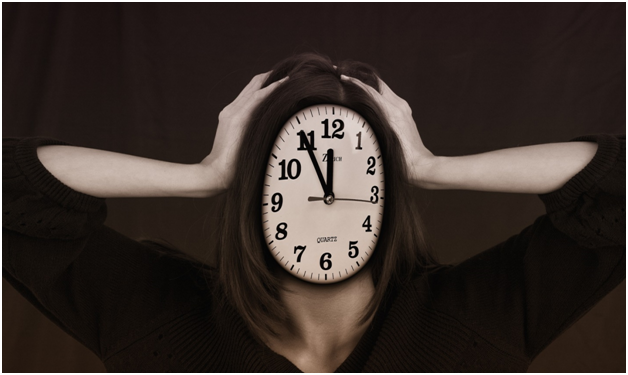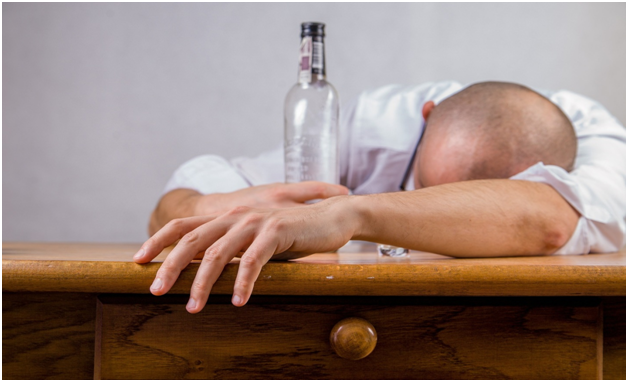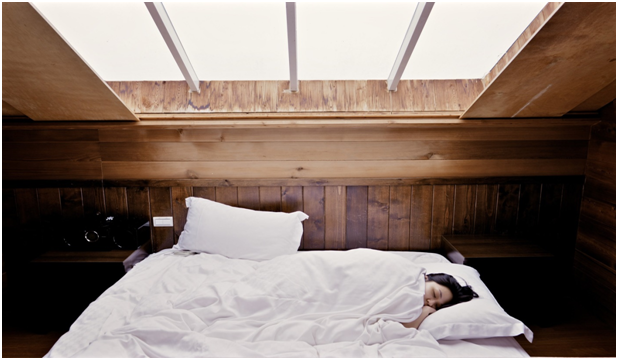Sleep is something all kinds of folks indulge in—a basic necessity that comes without question. However, seldom do we stop and think about the marvelous realm of sleep. Naturally, we just doze off without second thought. But now, it’s gonna be different. We’ll go on a comprehensive trip down this interesting state of mind and body through this article.
The positive impacts of a healthy sleep
A night of good sleep is almost an unseizable luxury for some people. While for others, it’s like taking candy from a baby. Though there are certain differences in people’s sleeping patterns, the benefits are all-too-similar. Primarily, it helps in restoring energy, reducing inflammation, repairing muscle tissue, managing body functions, and improving concentration. Plus, it helps in managing your hunger levels, which means that you can avoid over-consuming calories. Ultimately, a healthy sleep lessens the risk of depression, stroke, and heart disease.
The grave consequences of sleep deprivation
There’s something more worrisome than eyebags if you don’t get the amount of sleep you deserve. Sleep deprivation messes with your memory, immune system, emotional control, and physical ability. It also results in poor balance, impaired judgment, and decreased libido. On a deeper scale, lack of sleep leads to serious health issues. These include obesity, depression, cardiovascular disease, and diabetes. About 35.2% of American adults don’t follow the ideal sleeping duration. But how long must a person sleep, by the way?
The recommended amount of sleep

As attested by the National Sleep Foundation, younger children have to sleep for much longer hours. A 3 to 5 years old must have 10 to 13 hours of sleep while a 0 to 3 months old must have 14 to 17 hours of sleep. It’s also imperative not to sleep for too long or too short. An average adult should receive at least seven to eight hours of sleep every night. Furthermore, it’s not advisable to sleep more than eight hours, though.
Two Types of Sleep
At this point, we’re going to walk you through the sleep cycles. The two types of sleep are REM and non-REM. Firstly, REM sleep stands for rapid eye movement and is considered as the most crucial. You enter non-REM sleep as you drowse off. This is basically a dreamless sleep. Then REM sleep briefly follows 90 minutes after you fall asleep. At this stage, you experience dreaming. Getting numerous sleep cycles per night is extremely significant.
Sleep Disorders
We’ve talked earlier about how some people find it tremendously difficult to sleep at night. This may be due to simple sleep disturbances like jet lag or a busy schedule. However, if your sleep routine gets distraught on a daily basis, chances are, you have underlying problems. These are sleep disorders which range from the following:
- Insomnia – About one-third of adults experience symptoms of this common sleep disorder. Some symptoms include difficulty falling asleep and difficulty remaining asleep.
- Sleep apnea – This happens when a person’s airway gets blocked while asleep. As a result, the person may frequently stop breathing during sleep.
- Narcolepsy – A disordermarked by sleep attacks during the daytime which causes a person to suddenly fall asleep.
- Restless leg syndrome (RLS) – A condition that gives a person an intense urge to move his or her legs while asleep.
- Parasomnia – This is characterized by unusual behaviors like sleepwalking and nightmares during sleep.
- Sleep paralysis – A disturbance that causes an inability to move the body, limbs, and the head while falling asleep or waking up.
How Alcohol and Sleep are linked together

Some people use alcohol as a sleep aid. Now, this may work for a while but there’s a downside. Using alcohol to sleep increases your chances of dependency, which may lead to alcoholism. This affects your quality of sleep which either induces or aggravates the effects of sleep apnea or insomnia. Sipping alcohol before bed causes shallow sleep, night sweats, and REM sleep interruption. Well, do both men and women experience the same thing with alcohol consumption? As for women, they experience an increase in their deep sleep and a decrease in their REM sleep. Meanwhile, alcohol cuts both deep and REM sleep for men.
Treatment for Sleep Problems
Anyway, there’s a silver lining for sleep disturbances. Medical treatment and all-natural options ease the trouble of temporary and long-term sleep issues.
Sleeping Pills
For short-term sleep issues, over-the-counter (OTC) sleeping pills might come in handy. Despite that, it shouldn’t be used long-term as it may result in dependency issues. In some cases, certain lifestyle changes are a good fix. However, if a person experiences chronic sleep problems for a long time, he or she may need medical treatment or even surgery.
Natural Sleep-inducing Aids
Alternative treatments such as valerian, lavender, and melatonin work effectively as sleep aids. These help in inducing sleep and managing your body’s sleep-wake cycle. Although melatonin is a hormone naturally made by the body, you may also consider OTC melatonin supplements to boost your hormone levels. Essential oils like clary sage oil have calming properties that increase relaxation.
Guided Meditation & Hypnosis
These two techniques are performed by trained therapists and hypnotherapists. By engaging in these practices, your body and mind learn to relax, which therefore optimizes your quality of sleep.
Useful tips to achieve therapeutic sleep

Of course, we’ve saved the best for the last. This portion is dedicated to invaluable tips that you can apply immediately for healthy and restorative sleep.
If possible, sleep without your pets
Okay, hold your horses. Retiring to bed without your favorite animals may be too much to ask. However, research indicates how people who go to bed with their pets have their sleep easily disrupted. And the more sleep disruption, the lower quality sleep a person gets.
Observe a regular sleep time
You can condition your body to sleep by sticking to a daily routine. Don’t change your sleeping intervals abruptly. Choose a specific time to hit the sack and cling to it.
Steer clear of any electronics or caffeine
The mortal enemy of a good night’s sleep is a phone or any gadget that emits bright lights. There’s a reason why people turn the lights off at night. It prevents stimulation in the brain and makes sleep easier. In the same manner, you must avoid consuming anything that has caffeine at least four hours before dozing off.
Try exercising daily
Engaging in any sort of physical activity during the day pays off, especially at night. Doing this enables you to sleep deeper and relatively faster, too. Avoid exercising an hour or a minute before bedtime, though. This will make you stay up until who knows when.
Turn down alcohol
Drinking alcohol before bedtime is a definite thumbs down. This gets in the way with your brainwaves and intervenes with your sleeping pattern.
Conclusion
And we’ve reached the end of the tunnel. Sleep wasn’t that at all hard to decipher, right? Anyway, that’s enough for the day. You may be too hyped up about the wonders of sleep that you spend the rest of your night thinking about it. Remember, a healthy sleep is your top priority!



